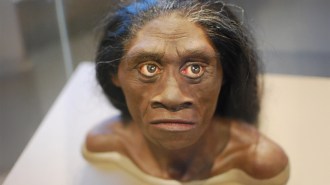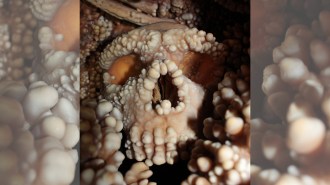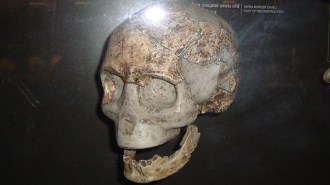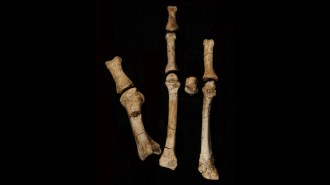Gene change hints at brain evolution
A gene mutated in people but not in chimpanzees around 2.8 million years ago, shortly before brain size swelled in the Homo lineage, according to a report in the Sept. 3 Proceedings of the National Academy of Sciences.
This DNA alteration prevented the gene from doing its normal job: producing a particular sugar molecule that attaches to the surfaces of cells, say molecular biologist Ajit Varki of the University of California, San Diego and his coworkers. The researchers are exploring how the gene in humans might foster the growth of brain tissue.
To estimate when the gene’s human version first arose, Varki’s team developed a technique to extract various cell-surface sugars from bones, including fossilized ones.
The crucial sugar was present in the bones of modern chimpanzees and several extinct mammals but not in fossils from two Neandertals. Thus, the gene mutation must have arisen before 600,000 years ago, when Neandertals shared a common ancestor with humans, the scientists say.
A comparison of the gene’s molecular structure in people and chimpanzees today then allowed the researchers to calculate when the human type arose.






